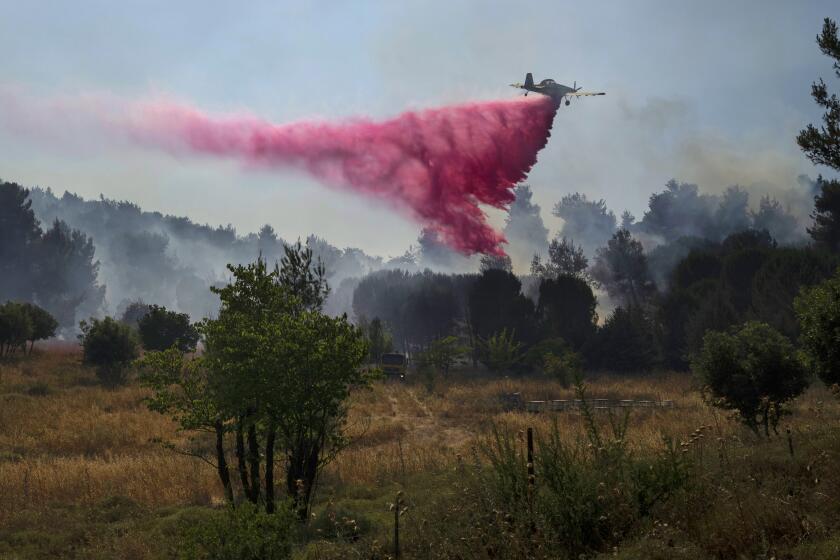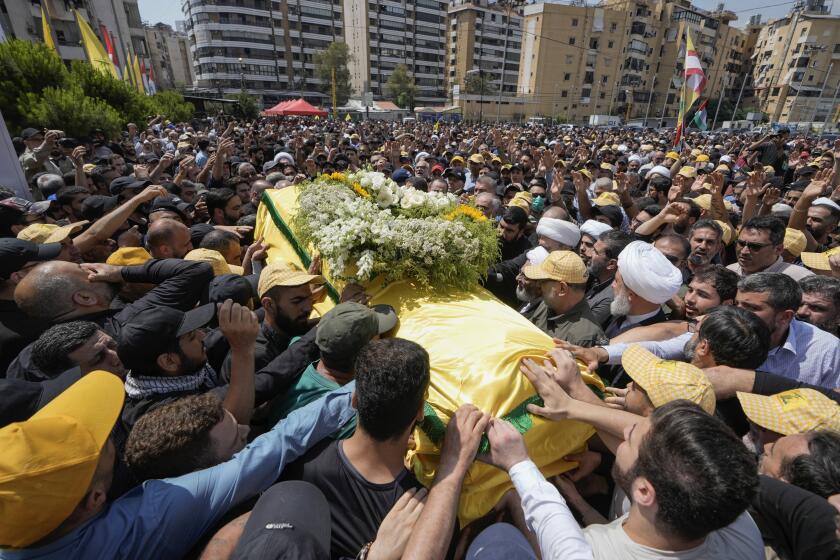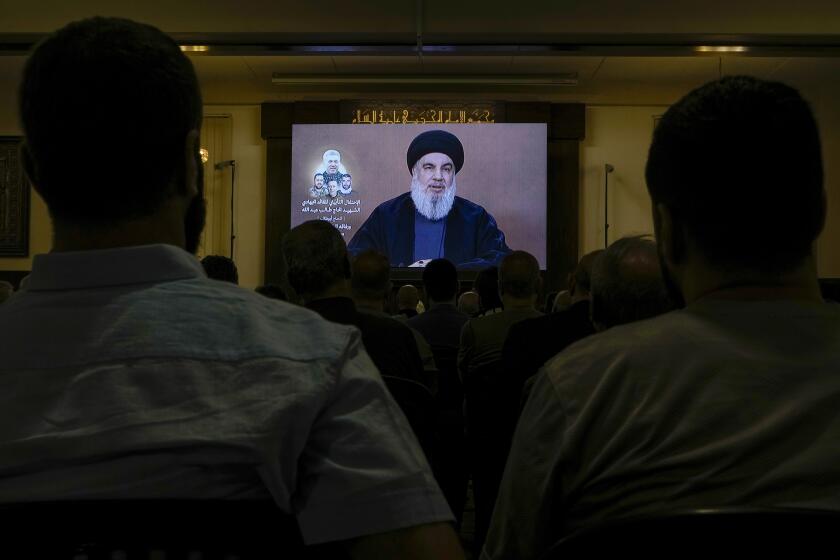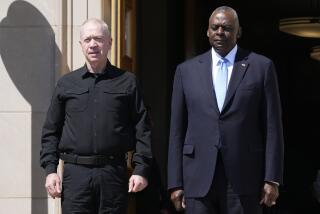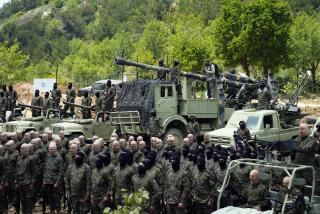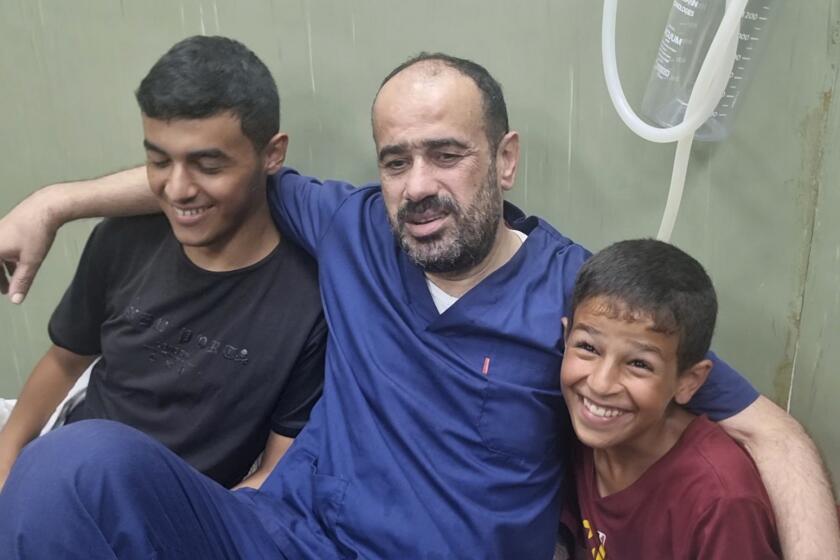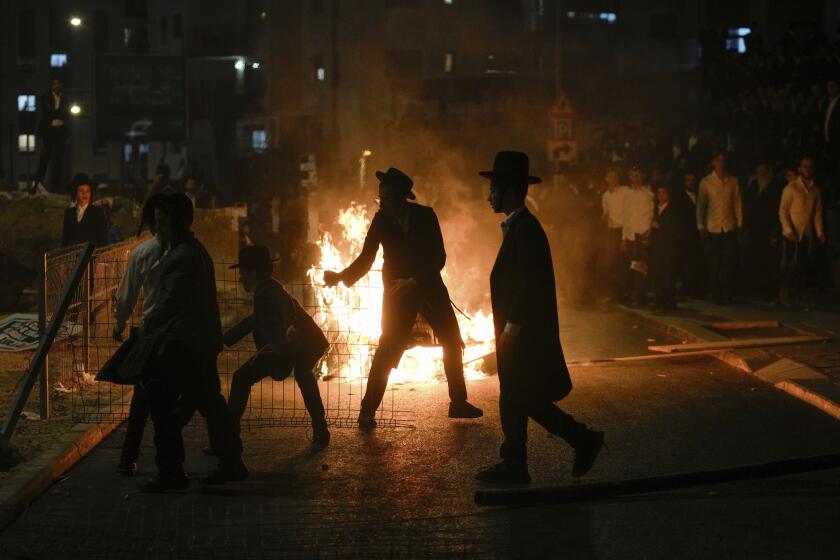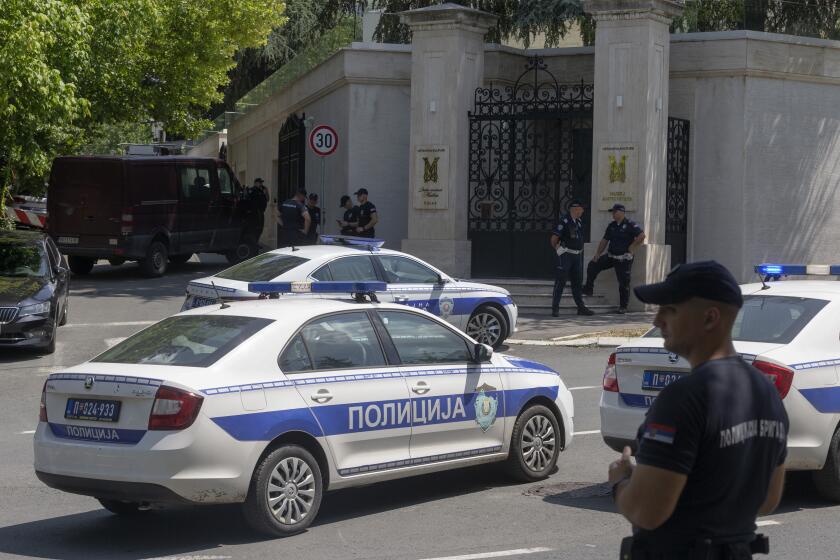A Hezbollah leader says it would stop fighting Israel if there was a cease-fire in Gaza
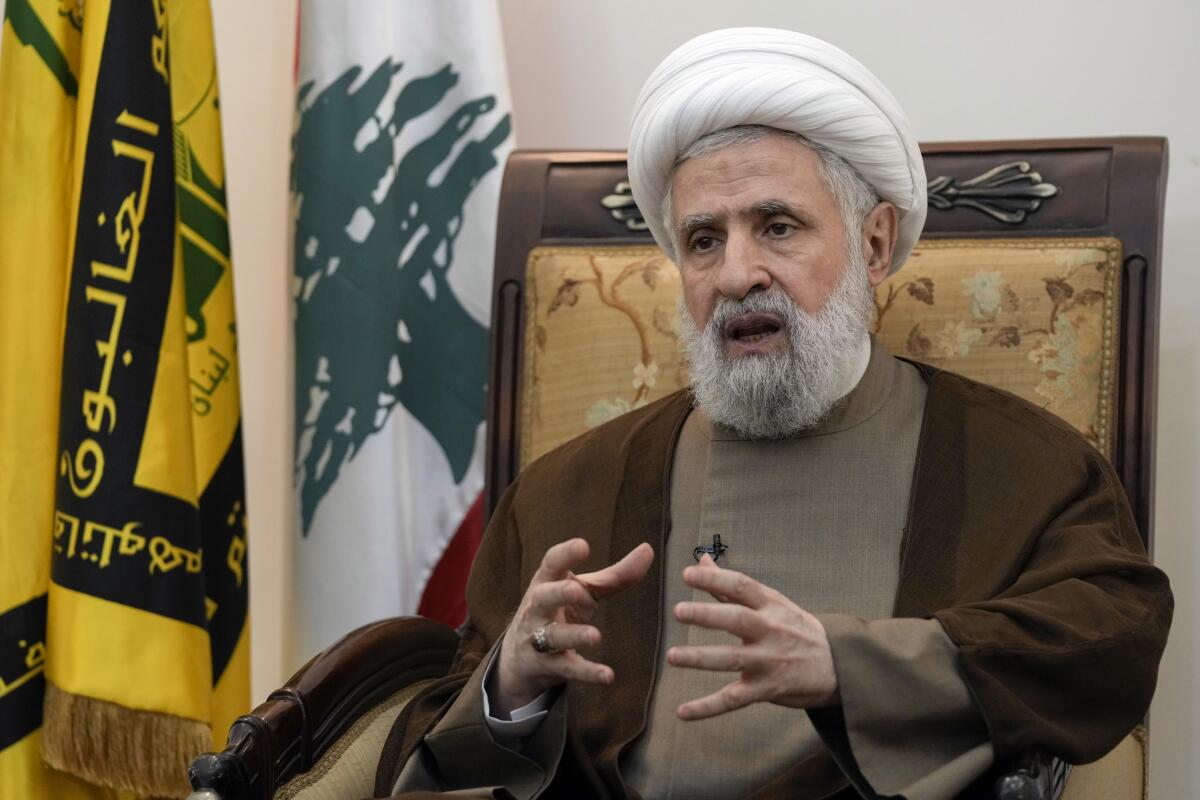
The deputy leader of the Lebanese militant group Hezbollah said Tuesday the only sure path to a cease-fire on the Lebanon-Israel border is a full cease-fire in Gaza.
“If there is a cease-fire in Gaza, we will stop without any discussion,” Hezbollah’s deputy leader, Sheikh Naim Kassem, said in an interview with the Associated Press at the group’s political office in Beirut’s southern suburbs.
Hezbollah’s participation in the Israel-Hamas war has been as a “support front” for its ally, Hamas, Kassem said, and “if the war stops, this military support will no longer exist.”
But, he said, if Israel merely scales back its military operations, without a formal cease-fire agreement and full withdrawal from Gaza, the implications for the Lebanon-Israel border conflict are less clear.
The escalating war between Hezbollah and Israel — coupled with scorching heat — has sparked fires that are destroying forests and farmland.
“If what happens in Gaza is a mix between cease-fire and no cease-fire, war and no war, we can’t answer [how we would react] now, because we don’t know its shape, its results, its impacts,” Kassem said during a 40-minute interview.
In recent weeks, with Gaza cease-fire talks faltering, fears have increased of an escalation on the Lebanon-Israel front. Hezbollah has traded near-daily strikes with Israeli forces along the border over the past nine months. The low-level conflict between Israel and Hezbollah has displaced tens of thousands on both sides of the Israel-Lebanon border.
Months of internationally brokered Gaza cease-fire talks have repeatedly failed. Hamas has demanded an end to the war, and not just a pause in fighting, while Israeli Prime Minister Benjamin Netanyahu has refused to make such a commitment until Israel realizes its goals of destroying Hamas’ military and governing capabilities and brings home the roughly 120 hostages held by Hamas.
Hezbollah has vowed to intensify its attacks along the Lebanon-Israel border to avenge the killing of its most senior military commander by Israel since the latest round of violence began eight months ago
Last month, the Israeli army said it has “approved and validated” plans for an offensive in Lebanon if no diplomatic solution is reached to the ongoing clashes. Any decision to launch such an operation would have to come from the country’s political leadership.
Some Israeli officials have said they are seeking a diplomatic solution to the standoff and hope to avoid war. At the same time, they have warned that the scenes of destruction seen in Gaza will be repeated in Lebanon if full-blown war breaks out.
Hezbollah, meanwhile, is a far more powerful organization than Hamas and is believed to have a vast arsenal of rockets and missiles capable of striking anywhere in Israel.
Kassem said he doesn’t believe that Israel has the ability or has made a decision to launch a war at present. He warned that even if Israel intends to launch a limited operation in Lebanon that stops short of a full-scale war, it should not expect the fighting to remain limited.
Hassan Nasrallah’s comments came as the cross-border conflict simmering between Hezbollah and Israel appears to be reaching a boiling point.
“Israel can decide what it wants: limited war, total war, partial war,” he said. “But it should expect that our response and our resistance will not be within a ceiling and rules of engagement set by Israel .… If Israel wages the war, it means it doesn’t control its extent or who enters into it.”
The latter was an apparent reference to Hezbollah’s allies in the Iran-backed so-called “axis of resistance” in the region. Armed groups in Iraq, Syria, Yemen and elsewhere — and, potentially, Iran itself — could enter the fray in the event of a full-scale war in Lebanon, which might also pull in Israel’s strongest ally, the United States.
Sewell and El Deeb write for the Associated Press. AP writers Kareem Chehayeb and Bassem Mroue in Beirut contributed to this report.
More to Read
Start your day right
Sign up for Essential California for news, features and recommendations from the L.A. Times and beyond in your inbox six days a week.
You may occasionally receive promotional content from the Los Angeles Times.
